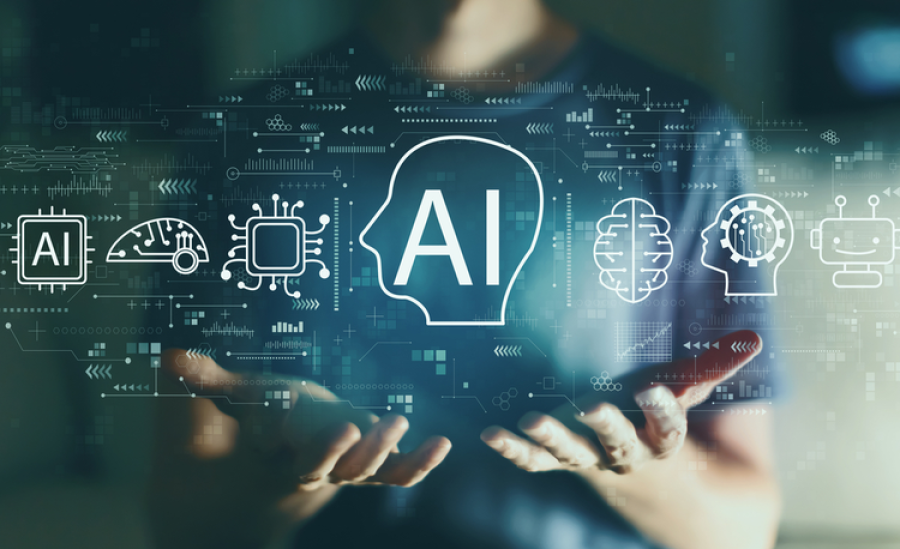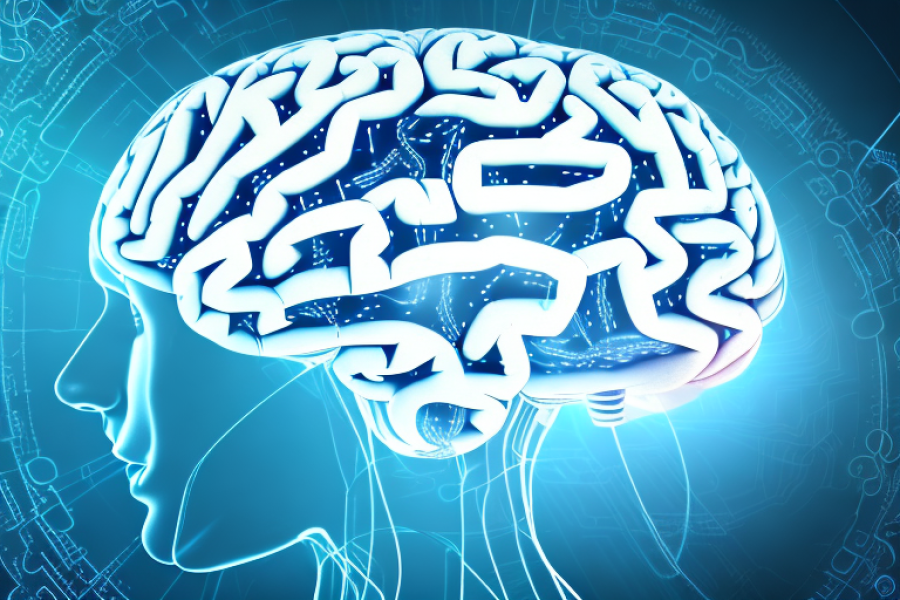Transforming Content Marketing with Content AI
In the ever-evolving landscape of digital marketing, Content AI (Artificial Intelligence) stands out as a powerful force reshaping the way businesses approach content creation, distribution, and engagement. This transformative technology has the potential to revolutionise content marketing strategies, unlocking new possibilities for personalised, data-driven, and highly effective campaigns. In this comprehensive exploration, we'll delve into the multifaceted ways in which Content AI is transforming content marketing, empowering businesses to connect with their audiences in more meaningful and impactful ways.
Section 1: Understanding Content AI in Content Marketing
1.1 The Role of Content AI
Content AI refers to the integration of artificial intelligence technologies into various aspects of content marketing. This includes content creation, optimisation, personalisation, and performance analysis. By leveraging machine learning algorithms and natural language processing, Content AI enhances the efficiency and effectiveness of content marketing strategies.
1.2 The Evolution of Content Marketing
Content marketing has evolved from traditional forms of advertising to a more customer-centric approach. The emphasis on providing valuable, relevant, and engaging content to the audience has become a cornerstone of successful marketing strategies. Content AI acts as a catalyst in this evolution, introducing a data-driven and dynamic dimension to content creation and distribution.
Section 2: Content Creation and Generation
2.1 Automated Content Creation
One of the most prominent ways Content AI transforms content marketing is through automated content creation. AI algorithms can analyse vast datasets, understand user preferences, and generate high-quality written content. This streamlines the content creation process, allowing marketers to produce a consistent flow of articles, blog posts, and other written materials more efficiently.
2.2 Natural Language Processing (NLP)
Content AI utilises Natural Language Processing to understand and interpret human language. This capability enables AI systems to generate content that not only adheres to grammatical rules but also captures the nuances of natural communication. As a result, the content produced feels more authentic and resonates better with the target audience.
2.3 Personalised Content at Scale
Content personalisation is a key driver of audience engagement. Content AI takes personalisation to the next level by analysing user behaviour and preferences. It can then generate personalised content recommendations, emails, or website experiences, allowing marketers to deliver individualised content at scale.
Section 3: Enhancing Content Optimisation
3.1 SEO Optimisation
Search Engine Optimisation (SEO) is a critical aspect of content marketing. Content AI contributes to SEO by analysing search trends, identifying relevant keywords, and optimising content accordingly. This ensures that the content is not only engaging for the audience but also highly discoverable through search engines.
3.2 Dynamic Content Optimisation
Content AI enables dynamic content optimisation, where elements of the content are adjusted in real-time based on user interactions. For example, a website could dynamically change the content displayed to a user based on their browsing history or previous interactions with the site. This level of personalisation enhances the user experience and increases the likelihood of conversion.
3.3 Multichannel Optimisation
In the era of multichannel marketing, content needs to be optimised for various platforms and devices. Content AI streamlines this process by automatically adapting content for different channels, ensuring a consistent and optimised experience across websites, social media, email, and other marketing channels.
Section 4: Personalisation and User Experience
4.1 Predictive Personalisation
Content AI goes beyond traditional personalisation by incorporating predictive analytics. By analysing user behaviour and historical data, AI algorithms can predict future preferences and deliver content recommendations that align with users' evolving interests. This predictive personalisation enhances user engagement and loyalty.
4.2 User Journey Mapping
Understanding the user journey is crucial for effective content marketing. Content AI assists in mapping the user journey by analysing touchpoints, interactions, and behaviours. This insight allows marketers to tailor content to different stages of the customer journey, providing relevant and timely information to guide users through the conversion funnel.
4.3 Hyper-Personalised Experiences
Hyper-personalisation involves creating highly individualised content experiences for users. Content AI achieves this by analysing a myriad of data points, including demographics, preferences, and past interactions. Marketers can deliver hyper-personalised content recommendations, emails, and offers, creating a more engaging and memorable experience for users.
Section 5: Data-Driven Decision Making
5.1 Content Performance Analytics
Content AI provides marketers with comprehensive analytics on content performance. Machine learning algorithms analyse engagement metrics, conversion rates, and other key performance indicators. This data-driven approach allows marketers to make informed decisions, optimise content strategies, and allocate resources effectively.
5.2 Predictive Analytics for Content Strategy
In addition to retrospective analytics, Content AI introduces predictive analytics for content strategy. By analysing historical data, AI algorithms can predict trends, identify emerging topics, and forecast the potential success of new content ideas. This proactive approach enables marketers to stay ahead of industry trends and audience preferences.
5.3 Audience Insights and Segmentation
Understanding the audience is at the core of effective content marketing. Content AI enhances audience insights by analysing data to identify trends, preferences, and segments. This detailed understanding allows marketers to create targeted content that resonates with specific audience segments, leading to more impactful campaigns.
Section 6: Challenges and Ethical Considerations
6.1 Ethical Use of Data
One of the challenges associated with Content AI in content marketing is the ethical use of data. Marketers must ensure that data privacy and consent are prioritised, and user data is handled responsibly. Transparent communication about data usage builds trust with the audience.
6.2 Maintaining Brand Voice and Authenticity
While Content AI excels in creating written content, maintaining brand voice and authenticity can be a challenge. Businesses need to carefully curate and review AI-generated content to ensure it aligns with the brand's tone, values, and messaging.
6.3 Overcoming Bias in Algorithms
Algorithms, including those used in Content AI, can inadvertently perpetuate biases present in training data. Marketers must be vigilant in identifying and addressing bias to ensure that content recommendations and personalisation efforts are fair and inclusive.
Section 7: Future Trends in Content AI and Content Marketing
7.1 Visual Content Generation
The future of Content AI in content marketing includes advancements in visual content generation. AI algorithms are expected to become increasingly proficient in creating visually appealing graphics, infographics, and even video content, expanding the possibilities for engaging visual storytelling.
7.2 Conversational Content Experiences
Conversational AI is poised to play a larger role in content marketing. Chatbots and virtual assistants powered by Content AI can engage users in real-time conversations, answering queries, providing information, and guiding users through content experiences in a conversational manner.
7.3 Augmented Reality (AR) and Virtual Reality (VR) Integration
As AR and VR technologies become more prevalent, Content AI is likely to play a role in creating immersive and interactive content experiences. This could include AI-generated content for AR applications or personalised VR experiences that adapt based on user preferences.
Section 8: Conclusion
In conclusion, Content AI is a transformative force in the realm of content marketing. From automating content creation to enhancing personalisation, optimising for SEO, and driving data-driven decision-making, Content AI empowers marketers to navigate the complexities of the digital landscape with unprecedented efficiency and effectiveness.
As businesses embrace Content AI, it's essential to navigate the associated challenges with a keen awareness of ethical considerations. Balancing the benefits of automation with human oversight, ensuring data privacy, and maintaining authenticity are key to harnessing the full potential of Content AI in content marketing.
The future promises even greater innovations, with visual content generation, conversational experiences, and AR/VR integration shaping the next phase of content marketing evolution. Businesses that leverage the transformative power of Content AI will not only stay ahead in the competitive content landscape but also redefine the standards of relevance, engagement, and success in their marketing endeavours.




